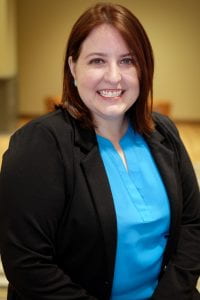Friday, March 29, 12:00pm – 1:00pm: Dr. Douglas Harris, Schlieder Foundation Chair in Public Education & Director, National Center for Research on Education Access and Choice (REACH), Tulane University
Title: High School Graduation By the Numbers
Please join Dr. Douglas Harris, Schlieder Foundation Chair in Public Education, Director of the National Center for Research on Education Access and Choice (REACH), and Professor and Chair of the Department of Economics at Tulane University, for a discussion on high school graduation rates, the future of high school graduation rates, and accountability in graduation standards.
Please read the following publication in the Journal of Labour Economics authored by Dr. Harris before attending the event:
Bio

Dr. Douglas Harris
Douglas Harris is Professor and Chair of the Department of Economics, the Schlieder Foundation Chair in Public Education, founding Director of both the Education Research Alliance for New Orleans (ERA-New Orleans) and Director of the National Center for Research on Education Access and Choice (REACH), all at Tulane University. His research has influenced policy and practice on a wide variety of K-12 and higher education policy issues. He is the author of three books including, most recently, Charter School City: What the End of Traditional Public Schools in New Orleans Means for American Education (University of Chicago Press, 2020). He is also a non-resident Senior Fellow at the Brookings Institution and has testified in the U.S. Senate and advised governors in eight states, the U.S. Department of Education, and Biden Transition. His work has also been cited in almost every major national and international media outlet.
In his most recent work, he is the lead editor on the forthcoming Live Handbook of Education Policy, sponsored by the Association for Education Finance and Policy. The handbook will provide open-access summaries of a wide variety of topics in pre-K, K-12, and higher education, written by leading experts but in a way that will be broadly accessible and regularly updated with the latest research. The Live Handbook, to be released in March of 2025, will provide a new way of communicating and interacting with scientific research, one that combines academic expertise with modern online tools such as Wikipedia.
Finally, he is Director of the State of the Nation Project. The project is designed to address current problems of polarization, distrust, pessimism, and misinformation by bringing together a diverse board of experts to identify the most important measures that address the question, how are we doing as a country? Slated for release in January of 20205, the project’s first report will cover topics ranging from education and the economy to the environment and health.








